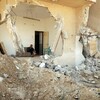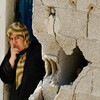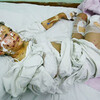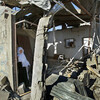
Razing Rafah: Mass home demolitions in the Gaza Strip
18 October 2004
Over the past four years, the Israeli military has demolished over 2,500 Palestinian houses in the occupied Gaza Strip. Nearly two-thirds of these homes were in Rafah, a densely populated refugee camp and city at the southern end of the Gaza Strip on the border with Egypt. Sixteen thousand people - more than ten percent of Rafah’s population - have lost their homes, most of them refugees, many of whom were dispossessed for a second or third time. It is difficult to reconcile the IDF’s stated rationales with the widespread destruction that has taken place, according to a new report from Human Rights Watch. Read more about Razing Rafah: Mass home demolitions in the Gaza Strip








